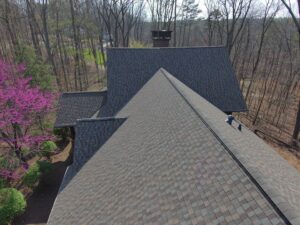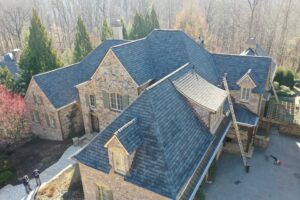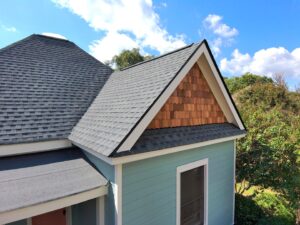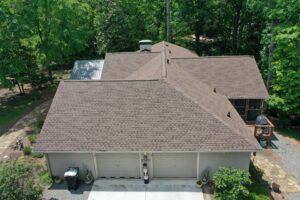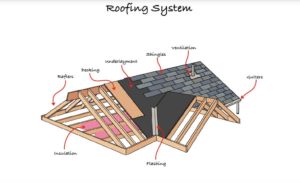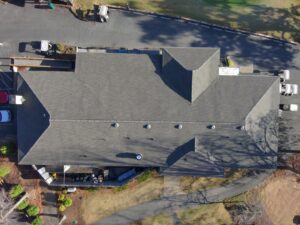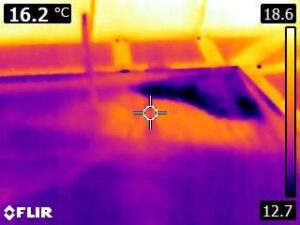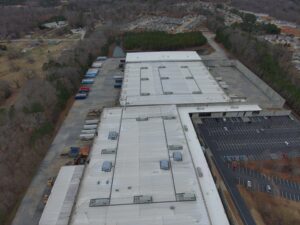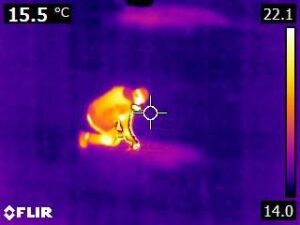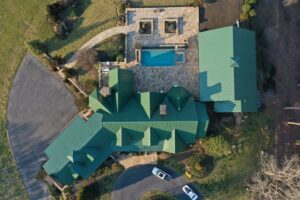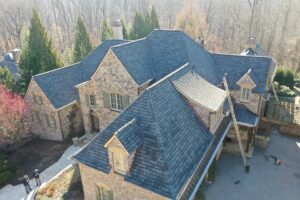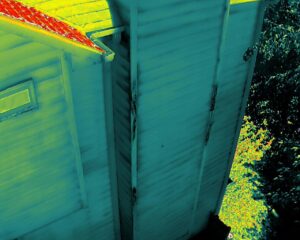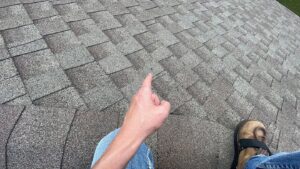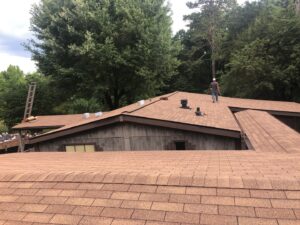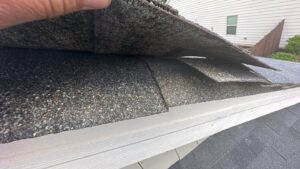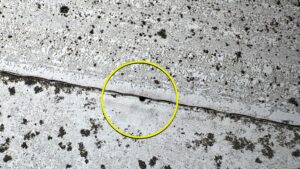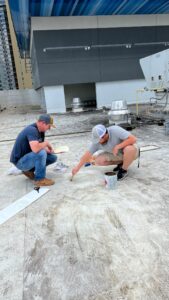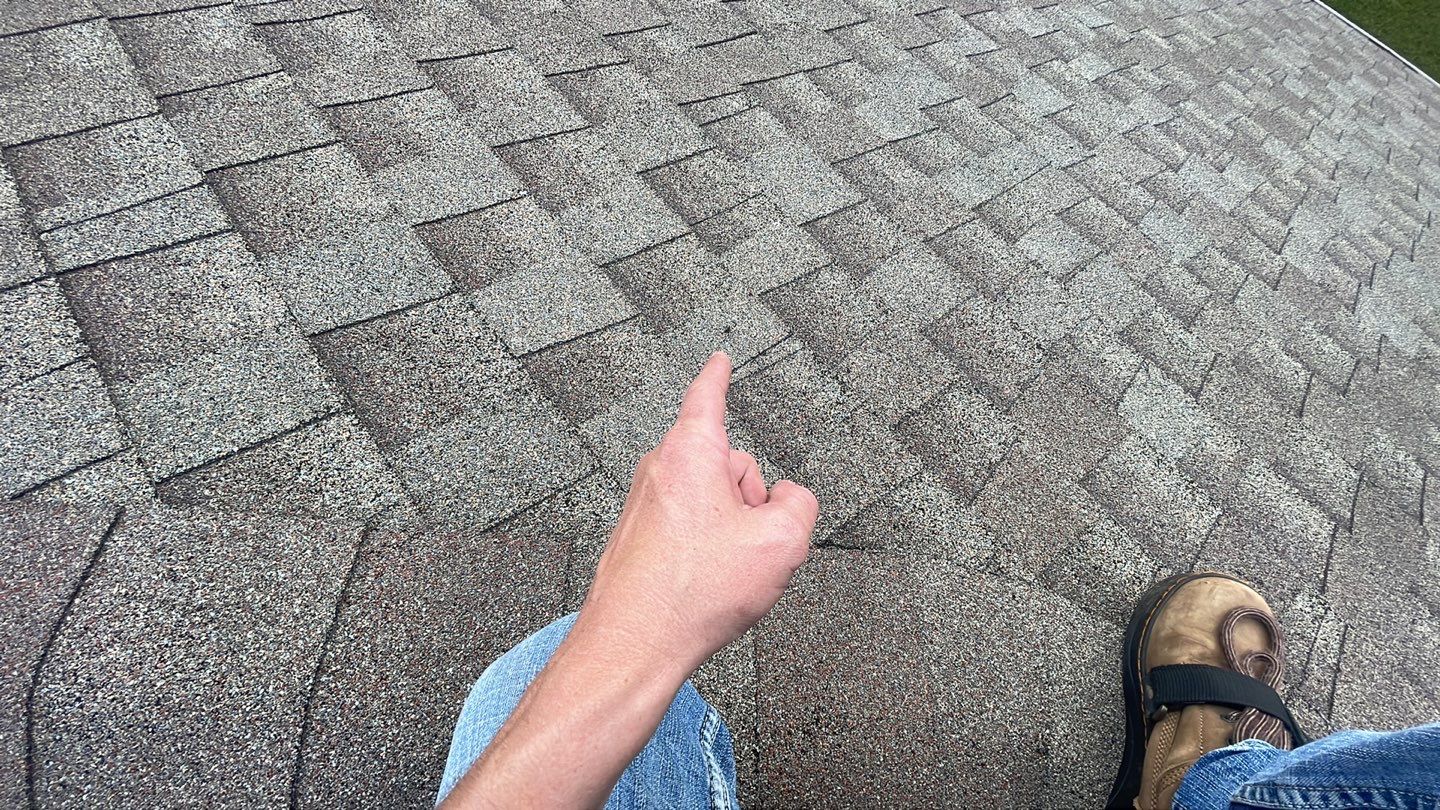
Roof Inspections for Residential and Commercial Buildings
Most roof inspections are conducted by salespeople who predominantly focus on storm damage, as their earnings are tied to roof replacements. While these inspections can identify hail damage, they often overlook other, more common causes of roof leaks. Our roof inspections go beyond simply identifying hail or wind damage. After years of inspecting thousands of roofs, we’ve realized that 90% of roof leaks aren’t caused by hail damage.
Thorough Roof Inspections
Our exterior inspections ensure there’s nowhere in your home that water can get in, regardless of the reason. We’re not just looking for storm damage; we’re looking for any potential problem that could lead to a leak. This complete approach to exterior inspections sets us apart, offering homeowners the peace of mind they deserve when it comes to their homes. This comprehensive guide will explore the benefits of thorough residential and commercial roof inspections.
Before diving into the inspection process, it’s essential to have a solid understanding of your roof. Each roof system layer plays a critical role in protecting your home from the elements, from the roof deck to the underlayment, shingles, flashing, and ventilation components. Different shingle materials, such as asphalt, wood, metal, or slate, have unique characteristics and maintenance requirements. By familiarizing yourself with these aspects, you can better evaluate the condition of your roofing system.
Residential Roofing System
- Shingles: Inspect the condition of shingles for signs of wear, damage, or curling. Replace missing or damaged shingles to prevent leaks and maintain the roof’s integrity.
- Flashing: Examine flashings around chimneys, vents, skylights, and other roof penetrations for damage or deterioration. Properly sealed flashings prevent water intrusion and protect the underlying structure.
- Gutters and Downspouts: Assess the condition and functionality of gutters and downspouts. Ensure they are clear of debris, securely attached, and direct water away from the foundation to prevent damage.
- Ventilation Systems: Evaluate the effectiveness of roof ventilation systems, including soffit vents, ridge vents, and attic fans. Proper ventilation prevents heat buildup and moisture accumulation, prolonging the life of the roof and improving energy efficiency.
- Roof Structure: Inspect the roof deck and supporting structures for signs of sagging, rot, or structural deficiencies. Addressing these issues early can prevent more significant problems and ensure the roof’s stability.
Commercial Roofing System Details
Commercial roofing systems differ significantly from residential ones. They often have low slopes or flat roofs, leading to unique challenges such as ponding water, increased risk of leaks, and specific maintenance requirements. Common commercial roofing materials include single-ply membranes (such as TPO, PVC, or EPDM), built-up roofs (BUR), modified bitumen, and metal roofing systems. Familiarizing yourself with your commercial roof’s specific characteristics and needs ensures a more effective inspection and maintenance plan.
Commercial Roof Inspection
- Membrane Integrity: Examine the roof membrane for punctures, tears, or seam failures. Inspect the overall condition of the material, looking for signs of aging or wear.
- Drainage Systems: Assess the functionality of drainage systems, such as gutters, downspouts, and internal drains. Ensure they are clear of debris and functioning correctly to prevent ponding water or leaks.
- Flashings and Penetrations: Inspect flashings, roof penetrations (such as vents or skylights), and expansion joints for signs of damage or deterioration. These areas are familiar sources of leaks and should be carefully evaluated.
- Thermal Imaging: Infrared thermography detects temperature variations, helping identify trapped moisture, insulation issues, and air leaks. This non-invasive technique enhances inspection accuracy and allows for timely issue resolution.
- Drone Inspections: Drones offer improved safety, reduced inspection time, and high-quality images. They enable inspectors to access hard-to-reach areas without ladders or scaffolding, leading to more accurate assessments and documentation.
Roof Inspection Preparations
At Fowler Exteriors, we understand that proper preparation is essential for a thorough roof and structural inspection. Our team comes equipped with all the necessary tools and equipment, including ladders, flashlights, thermal imaging, and drones when needed to inspect your roof. We begin the inspection process by conducting a preliminary ground-level assessment, carefully examining your roof for any visible signs of damage or areas of concern. This initial inspection guides our approach and ensures a comprehensive review of your roof’s condition. With our expertise and attention to detail, we are committed to providing a detailed and accurate evaluation of your roof’s structural integrity.
Starting with the Basics: Annual Inspections
Annual Inspection for Shingle Damage and Deterioration We start your annual inspection by surveying the entire roof surface, looking for shingle damage or other telltale signs of deterioration. Please pay close attention to curling, cracking, blistering, and damaged or missing shingles, as they indicate potential problems. Inspect the edges, valleys, and ridges for wear or inadequate sealing. Additionally, we check for loose or improperly secured shingles that may be susceptible to wind damage.
Advanced Tools: Thermal and Drone Inspections
Advanced tools offer insights beyond what is visible to the naked eye for a more thorough shingle roof inspection. Thermal imaging cameras can uncover hidden moisture or insulation problems by highlighting temperature differences across the roof’s surface. Using drone technology enables aerial examinations, giving professional inspectors a comprehensive perspective that might uncover potential issues otherwise unnoticed from ground level. Utilizing these advanced tools allows for a complete understanding of the roof’s condition during inspections.
Detailed Inspection Report: Videos and Photos
Documenting the inspection process is essential for record-keeping, insurance companies, and communication. Take detailed photos, videos, and drone footage to capture crucial details. Focus on areas of concern, such as damaged shingles, flashing defects, or signs of water intrusion. These visual records serve as valuable evidence and aid in creating an organized inspection report, which can be shared with roofing professionals or insurance adjusters when necessary.
Identifying Signs of Wear, Aging, and Storm Damage
Evaluating the condition of the shingles is a fundamental part of the home inspection process. Look for signs of wear, aging, or storm damage. Granule loss, excessive fading, or brittleness may indicate shingle degradation. Assess the extent of any roof damage and consider the remaining lifespan of the shingles. This assessment informs decisions regarding repairs, replacement, or maintenance to prolong the roof’s durability.
Evaluating Flashing, Gutters, and Ventilation Systems
While the shingles are the most visible part of a roof, properly inspecting the underlying structure and components is equally crucial for the roof’s condition and performance. Inspect the roof deck for sagging, rot, or structural deficiencies. Check the condition of flashing, gutters, and ventilation systems to ensure proper functionality. Identifying potential issues, such as deteriorated flashing or inadequate ventilation, allows for targeted repairs or adjustments that can prevent further damage to the roof and protect your home.
Benefits of Regular Roof Inspections
By scheduling regular roof inspections, you can identify and address potential problems early on, preventing them from escalating into more significant and costly repairs or roof failures. Detecting issues early allows for timely and necessary repairs or maintenance, prolonging the lifespan of your roof.
Insurance Claims
In the event of severe weather or unexpected damage, having documentation from regular roof inspections can support your insurance claims. Insurers often require evidence of the roof’s pre-damage condition to determine coverage and claim settlements. You can ensure a smoother claims process by having comprehensive inspection reports and visual records.
Enhanced Energy Efficiency
A properly maintained roof with adequate ventilation and insulation can improve your energy efficiency. Regular inspections can identify areas where energy loss may occur, allowing you to take appropriate measures to optimize insulation and ventilation. This results in energy savings and a more comfortable living and work environment.
Peace of Mind
Knowing that your roof is in good condition and protecting your home or business provides peace of mind. Regular inspections offer reassurance and allow you to address any issues promptly, ensuring your safety and comfort.
Longevity of Your Roof
A well-maintained roof is likelier to have an extended lifespan. By addressing minor problems early, you can avoid significant damage that could require a premature roof replacement. Regular inspections and maintenance help preserve the integrity of your roof and maximize its longevity, saving you money in the long run.
Schedule Your North Georgia Roof Inspection Today
At Fowler Exteriors, we are dedicated to ensuring the well-being and satisfaction of our customers. Our comprehensive roof inspections in North Georgia thoroughly evaluate your roof’s condition, helping you make informed decisions about repairs or replacements.
Remember, your roof is your first line of defense against the elements, and regular roofing professional inspections are a proactive measure to protect your home investment. Trust the professionals at Fowler Exteriors for all your roofing needs. With our expertise and commitment to quality, you can have peace of mind knowing that your house and roof are in good hands.
Contact our expert roof inspectors at 770-800-8758 or visit our website to schedule your roof inspection. Don’t wait until a minor issue becomes a significant problem—let us help you maintain a solid and durable roof for years.
